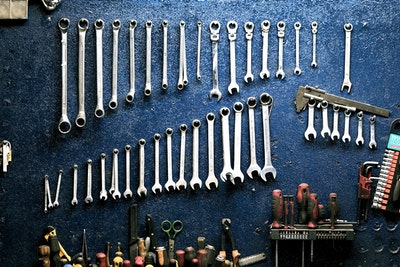5 Tips on Getting a Mechanic’s Lien in Louisiana
 If you’re a sub-contractor or supplier working for a general contractor or being hired by an individual or company, you have your rights. Whatever you do, you must be paid for that. For some reason, this doesn’t always happen.
If you’re a sub-contractor or supplier working for a general contractor or being hired by an individual or company, you have your rights. Whatever you do, you must be paid for that. For some reason, this doesn’t always happen.
All those working in remodeling or building projects in Louisiana probably heard of mechanic’s lien. It’s the best legal tool to ensure the project goes smoothly and that the client who hired you won’t owe you.
If anything goes wrong and you don’t get what you’ve earned, this tool provides you with a security interest in the client’s property.
Read more about how a lien ‘burden’ property owners: https://www.houselogic.com/remodel/budgeting-contracting/what-do-contractor-puts-lien-on-house/
#1 Be Informed
It can happen to anyone that the client remains indebted to him. If you only think about it when non-payment occurs, then the billing problem will be big, and the process is quite complicated.
That’s why it’s essential to think ahead – even if the client is reliable and there weren’t any problems so far. You should always think in the direction of ‘what if the client can’t pay me now.’
There are many resources where you can inform about mechanic’s lien in the state of Louisiana. Check with the Louisiana Department of Labor (LDF) website for information on filing a claim. You can also contact the Louisiana Contractor Registry for additional information.
Both these resources offer a variety of tools and tips on how to secure your labor and payment. You can also look online for websites that help you file a mechanic’s lien in a specific state. When you’re ‘armed’ with information, chances of being scammed are minimal.
#2 Know Your Rights
Suppose you’re planning to work on a remodeling or building project in Louisiana that seems to be uncertain, or you think some troubles might occur in the meantime. That’s when your payment can come into question.
In that case, it’s in your best interest to consult with someone specializing in lien issues to make sure that you’re aware of the lien laws in this state. Get in touch with the local parish recorder of mortgages office, as these are places where your claim will be recorded.
Most experts will suggest you get into the procedure of mechanic’s lien to ensure your payments. When a contractor submits a claim to obtain payment on materials or labor, it indicates that they have little confidence in the client or anything related to the construction project.
In Louisiana, the right to fill a claim has all those who work on private property or public projects. This state’s law doesn’t cover the payment in the case of material suppliers and their sub-suppliers. They can rely on preliminary notices, but these documents are voluntary, not mandatory.
#3 Respect Deadlines
It’s good to know that there’s an option like a mechanic’s lien that somehow secures your payment. True, the process can take a while. Still, because of the methods used (but also because clients often want to avoid legal confrontation), payments often happens earlier than you expect.
In order for this process to play out properly and end in your favor, you need to gather the necessary documentation and meet the procedural deadlines. Before completing the claim itself, it’s necessary to take some steps in preparation for using this legal tool.
Louisiana law orders that contractors and clients make a Notice of Contract before starting a project. This document secures lien rights.
You should know that it’s possible to exercise the right to Louisiana mechanic lien without signing the Notice of Contract. Still, the deadlines regarding the mechanic’s lien will be shorter.
Contractors on residential projects can fill in the Final Notice of Non-Payment instead of the Contract Notice. This notice is most often used by those who have not signed directly with the property owner, i.e., subcontractors or workers.
Also, it’s available to material suppliers and equipment rental companies.
#4 Keep Up with Law Updates
Earlier this year, the law on mechanic’s lien was changed. Now the number of projects on which the use of this legal tool is allowed has been reduced. The project’s value for which the preliminary notice was legitimate is $ 100,000 now (raised from $ 25,000).
Notice of Contract protects you because it allows filing a claim against a non-payer within a specific time frame, following all legal procedures. But things can get complicated if the client fills out a Notice on Termination.
It’s an official document by which you are fired from the project for some reason (they were not satisfied with the work, not meeting deadlines, etc.).
Still, that doesn’t negate your right to be paid for what you did so far. If you are ‘insured’ with preliminary notices, you will be able to get your money.
Still, the deadline for completing the claim is significantly shortened (from 7 months to only 60 days). In case you haven’t signed the Notice of Contract, you have only a month to exercise your right to a claim.
#5 Be Ready to Least Desired Action
The purpose of filling in a mechanic’s lien is to ‘scare’ non-payers in some way. In most cases, the disputing parties reach some agreement on settling the debts (in full, in installments, or in some other way).
It’s not in anyone’s interest for the case to go to trial, as that can take a long time and be a much more expensive option. But when the client ignores all of your preliminary notices, you have to take further action. See here what those can be.
When you reach for this option, you have to go to the end. It means that you will eventually initiate a foreclosure action. Simply put, it’s a lawsuit against a non-payer. In Louisiana, this must be done within one year of completing a charge. If that deadline passes, the claim becomes invalid.
Filing a mechanic’s claim is your right. If you provide labor in Louisiana and suspect you can run a non-payer, it’s only up to you whether you’ll use this legal tool or not. But remember, it is better to be safe than sorry.




